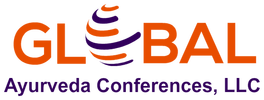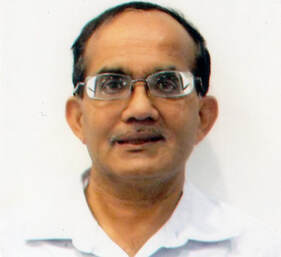- Clinical Ayurveda
- >
- Face Mask and Human Health - Dr. N. Moolky
Face Mask and Human Health - Dr. N. Moolky
Dr. Nagabhushan Moolky, PhD, CNS, Illinois, USA - a certified nutrition specialist, Health Coach, Scientist & Yoga researcher. He worked as a scientist for the last 35 years. He was a Scientific Officer at Tata Memorial Center Cancer Institute, Bombay, India where he completed his Ph.D. He worked as a scientist in several top notch Universities in USA. He was the first one to show (1984) that some of the spices (its principles) - Turmeric (Curcumin), Ginger (Gingerol, Shaogol and zingerone), Catechu (Catechin) and betel leaf (Hydroxychavicol) prevents genetic damage resulting in cancer formation caused by environmental and dietary chemicals. He is the first one to show (1984) that Turmeric in diet prevents virus-induced spontaneous mammary tumors in mice. His research was recognized by more than 20 awards by national and international organization including Young Scientist Award (Gold Medal), 1988 from Indian Council for Medical Research (ICMR), New Delhi, India and New Investigator Award 1989, American College of Nutrition, USA. He has published his research findings in peer-reviewed national and international scientific journals and also presented more than 150 abstracts in national and international scientific meetings. In 2004, he was invited to present his work at the First International conference on childhood leukemia, London. The presentation was covered by all major news papers and news channels around the world including BBC, CNBC, CBS, ABC news.
Topic: Face mask and human health
Abstract: Dr. Nagabhushan Moolky, Ph.D., C.N.S., Usha Kolpe, MD** & Arnav Shandilya* Senior Scientist, Health Coach, Expert Witness, Independent Consultant – Nutrition & Toxicology, Oakbrook, Illinois, USA.**VA Hines Hospital, Maywood, Illinois, USA *Neuqua Valley High School, Naperville, Illinois, USA. Around 1000 BCE, Ayurvedic Surgeon Sushruta, the father of surgery and Ayurvedic Physician Charaka, the father of medicine, described how a disease spread from person to person and within communities in Sushruta samhita and Charaka samhita. Both recognized that by following certain hygienic practices the spread of infection could be prevented. Breathing, touching and eating/drinking contaminated food/beverages is the main cause of spread of disease resulting in mass destruction of human life in a short period of time. Sushruta developed several surgical techniques and appropriate instruments for surgery. He was the first to use a face mask to prevent spread of pathogens during surgery. Charaka was the first one to suggest the use of cloth (Plain or herbal treated) to cover the face (Nose and mouth) to prevent spread of pathogens. Due to the ongoing COVID-19 pandemic, the importance of wearing a face mask to prevent the spread of the coronavirus was recognized by health experts, health care workers, and communities. At present (October, 2020), there are no vaccines or drugs specifically to prevent infection and cure the disease. The only way is social distancing, detection of infected and isolation and wearing a face mask. Face mask is the physical barrier and non pharmaceutical way of preventing contracting disease. The face mask prevents droplet carrying virus transmission by filtering inhaled and exhaled air. This measure reduces the critical mass of the virus that are required to manifest disease in a person. Exposure to certain small amounts of a virus may induce favorable host immunity, May enhance the formation of herd immunity in a community. There are a variety of face masks. Face mask not only filter viruses, microbes, pollens and dust particle but also acts as barrier to spray of mouth saliva and nasal droplet's aerosol. Single-use surgical masks used by healthcare workers are very efficient, filtering 80-99% of viruses. However, these are expensive and also generate enormous waste. Multiple-use face masks are made from cloth with multiple layers and pleats and are less expensive with less efficient filters (60-70%). They are reusable after cleaning and sanitization and will hence reduce created waste. Multiple-use face masks are overall the best option to be used by the public community. Some face masks also come with copper salts and other material impregnations, which increase their efficiency in preventing disease contraction. There are also Ayurvedic face masks made from hand-woven cloth, muslin cloth, silk, and khadi. These face masks are soaked with medicinal plant decoction that have antiviral properties. Turmeric for example exhibits antiviral activity in cell culture towards many human viruses, Mouse Mammary tumor Virus, in mouse model (Dr. Nagabhushan Moolky, 1987), Human Epstein Barr Virus (EBV) (Dr. Nagabhushan Moolky, 1997), Human Papillomavirus (HPV), Human T-lymphotropic virus-1 (HTLV1), Ebola virus, Norovirus, Chikungunya virus, Dengue fever virus, Zika virus, H1N1 virus, Japanese encephalitis virus, Herpes simplex virus type 1 & 2 (HSV–1 & 2), Human immunodeficiency virus (HIV1), HIV2, Influenza A virus and Hepatitis B & C virus. A molecular docking study has shown that the active compound of turmeric curcumins has the potential to kill COVID-19. Making home made Turmeric Face Mask is simple and inexpensive. Boil turmeric powder in water for 10 minutes. Add few drops of virgin coconut oil and lemon juice. Both virgin coconut oil and citric acid in lemon juice has anti vital activity. May enhance the antiviral activity turmeric(Curcumins). Dip the cloth face mask. Dry after washing or without washing. Drying not to be done in direct sunlight. Copyrighted by Dr. Nagabhushan Moolky

